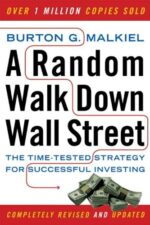Stock Valuation: An Essential Guide to Wall Street’s Most Popular Valuation Models
$22.06
A practical look at the valuation models used by Wall StreetVeteran consultant and educator Scott Hoover analyzes the limitations and idiosyncrasies of major valuation models. He examines the time value of money, cash flow analysis, discount rates, and other tools, and describes how money managers and bankers apply them to valuation.
Author’s Note:
To be clear, this book is not intended for the casual investor, but is rather intended for anyone who wishes to work in an investment field. Although the discussions are based more on intuition than on the underlying math, stock valuation is a nontrivial undertaking. As such, we must discuss some difficult concepts. Despite this, I wrote the book to be accessible to those without substantial knowledge of finance or accounting principles.
There were three objectives that I kept in mind in choosing a style for the book. First, it would be a stand-alone book that does not require significant prior knowledge of accounting and finance concepts. Rather than assume (or hope) that the reader already understands the time value of money, the relationship between risk and return, and how to analyze financial statements, the book addresses those issues in depth. Second, the book does not focus solely on academic theories or solely on the practices of investment professionals, but rather joins those ideas together. In doing so, we could understand both the theoretical underpinnings of the practices of investment professionals and the difficulties those professionals face in applying the theories.
Third, to the extent possible, the book is conversational in nature, so the reader will not be overwhelmed with technical jargon and highly scientific arguments. Instead, concepts are presented in simple, understandable language that focuses on the important intuition. This does not mean that the book lacks rigor, but that the book’s highest priority is to communicate an understanding of the key intuition behind the topics—first and foremost, I wanted the reader to understand why investment professionals use various techniques, and what biases might be introduced in using them.
Contents:
- Setting the Stage
- Price Formation, Market Efficiency, and Great Investors
- The Time Value of Money
- Understanding Financial Statements
- Interpreting Financial Statements
- Capital Structure and the Cost of Capital
- Forecasting
- Valuing Employee Stock Options
- Relative Valuation and Screening
- The Discounted Cash Flow Model
Stock Valuation: An Essential Guide to Wall Street's Most Popular Valuation Models By Scott Hoover pdf
| Author(s) | |
|---|---|
| Format | |
| Pages | 386 |
| Publication Year | 2006 |
6 reviews for Stock Valuation: An Essential Guide to Wall Street’s Most Popular Valuation Models
Only logged in customers who have purchased this product may leave a review.










Vienna Watts (verified owner) –
The explanations through appropriate choosed examples makes it easy and understandible read.
The approach of Peter Lynch,Bill Miller,and Warren Buffett is mentioned too.
Malakai Cross (verified owner) –
Good book with it went more into detail about creating a dcf model
Haven Hale (verified owner) –
Hoover writes for a reader interesting in deciphering financial statements, and who is willing to indulge in some simple analysis. This is really an introductory book to its field. But quite adequate for a layperson. The maths requirement is rudimentary. Summation of a finite series for estimating the time value of cash flow is a typical formule in the book. The maths is not emphasised. Instead, there is more of a general education in qualitative or semi-quantitative forecasting of a firm’s future earnings. This is often quite adequate, without the need for more sophisticated modelling. Mostly because earnings can be so volatile.
One topical issue is how to value employee stock options. This has been a point of contention since at least the early 90s. When a bunch of Silicon Valley companies successfully nixed an attempt by the SEC to force companies to write a cost of issued options. Now, after the dot com and telecom implosions, it is mandatory. And the book shows easy ways to get reasonable estimates.
Ezequiel Luna (verified owner) –
now on my regulator stock reading
Journey Marquez (verified owner) –
This book does a very good job in covering the main concepts and procedures in stock valuation. It is very readable and very informative. The background required from the reader is quite basic. The reader needs only basic knowledge of finance and accounting and basic math.
The book presents a good introduction to financial statement analysis, discounted cash flow, relative valuation, and accounting for stock options in the valuation process.
I believe investors will find this book very useful, very informative, and very practical.
Dakota Cortez (verified owner) –
This examines valuing a company from many angles. It is thorough and each concepts generally has several approaches to it. I would rate it as one of 4 or 5 necessary books on the subject.